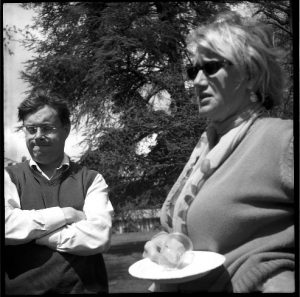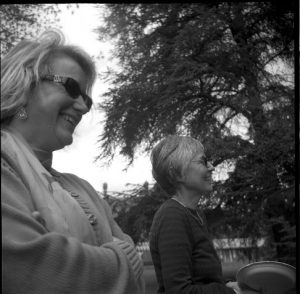Barbara Goff, Department of Classics, School of Humanities b.e.goff@reading.ac.uk
In the Classics department we reckon we review our curriculum all the time. We are constantly designing new modules that take cognisance of the latest research and share it with our students. We teach with epigraphy and 3D modelling, we explore the language of ancient graffiti and the modern debates about postcolonialism. At the same time, we provide a solid background of language teaching in Latin and Ancient Greek, and core modules in the basics of ancient Greek and Roman history and literature. But it’s always a good idea to step back and view the curriculum as a whole, to check that it really serves our students, as well as corresponding to the overall University strategy.
Our focus
When the Curriculum Framework Review was launched, we were particularly pleased with the new Graduate Attributes, as we already think of our provision in terms of subject knowledge coupled with skills in research and enquiry. Since everything we do is about cultures other than the one we inhabit, we were sure too that our curriculum helps our students’ global awareness. The personal effectiveness of our students – maybe our colleagues too – can always use a little burnishing, of course.
At the time that the Curriculum Framework Review was launched, we were already discussing two specific aspects of our provision in our Teaching and Learning Committee. We wanted to review the core modules at Part 2, with a view to possibly replacing them, discontinuing the associated examinations, and changing the structure of the degrees. We also wanted to get a new textbook for Ancient Greek. This latter point will not resonate with many colleagues in other parts of the University, but it’s very important for us!
Another thing that concerned us as a Department was that our employability figures are not always very good compared to those of our competitor departments. We have an employability module that we regularly update, taking account of student feedback, but we needed to think about what else we might do.
Our preparations
We were helped in our endeavours by our School Director of Teaching and Learning, Prof. Matthew Nicholls, who is developing a range of ways to talk to students in the School of Humanities about the Graduate Attributes and how they work across the three years of our programmes. We also had good support from our partners in CQSD (Kamilah Jooganah and Aaron Cooper) and Careers (Kevin Thompson and Claire Mack). After a series of discussions with them, we ran an exercise in which we looked at the range of assessments we offer and the support that we give to students in preparing for them. This has since been used as an example by CQSD in other departments. This was part of our project to consider discontinuing exams, as in our partner Departments Philosophy and Archaeology, and also helped with reviewing students’ transferable skills.
After other discussions with colleagues, we worked in two directions. We obtained funding for an Awayday for all those who teach in the Department, including postgraduate researchers, along with our partners in Careers and CQSD, and in the Departments with which we share joint degrees. We also obtained funding for a series of focus groups with undergraduates in the Department. I want to put on record my thanks to the students who took part, and especially Aimee Grace Day who ran the groups and reported back to us – she has now gone on to a Masters degree, and we are sure of her success! The reports compiled helped us to see where our students’ strengths could use further development, and to what extent our vision of the curriculum was being effectively communicated.
Our Awayday
One of the best things about our Awayday was the location in Foxhill House, which none of us knew very well. We immediately felt that its old-fashioned charm would make it an excellent location for a Classics department! The lunch break was enhanced by a stroll down to the lake. On either side of lunch, we engaged in some serious discussion of assessment, the relation between cores and options, and employability. The reports from the student focus groups were prominent in our thinking.
It may not be a surprise – since we are a Department of Classics, after all – that we concluded our discussions by not changing very much. We decided to keep the few exams that we do still have, because of the important skills they help with – testimony from our postgraduate researchers helped our conclusions here. We decided to keep the same core modules at Part 2, but to modify the assessment to ensure that all our students have a chance to practise presentations as well as more traditional activities. The one major change we made was in relation to employability, where we are going to make our placement module a core instead of an option. This involves us in rewarding collaboration with the School’s Placement Officer. We also realised that our students have masses of transferable skills, developed through our teaching and assessments, but could use some help defining and describing them in relation to employment. The funding for this day was really helpful in allowing us time and space to discuss the important elements of our curriculum thoroughly, and to specify actions that will take us to the next steps.
Although we did not change much, then, we all aired our views, and ended up as a Department ‘owning’ our curriculum much more firmly than before. We have a newly keen sense of its possibilities, and a determination to help our students articulate their strengths and skills as they progress through our programmes.
And the Ancient Greek textbook? We are going to use the one that several of us learnt our Ancient Greek from, conceivably in Ancient Greek times…


The photos were taken on Prof. Peter Kruschwitz’s classic, steam-powered, Lubitel camera.